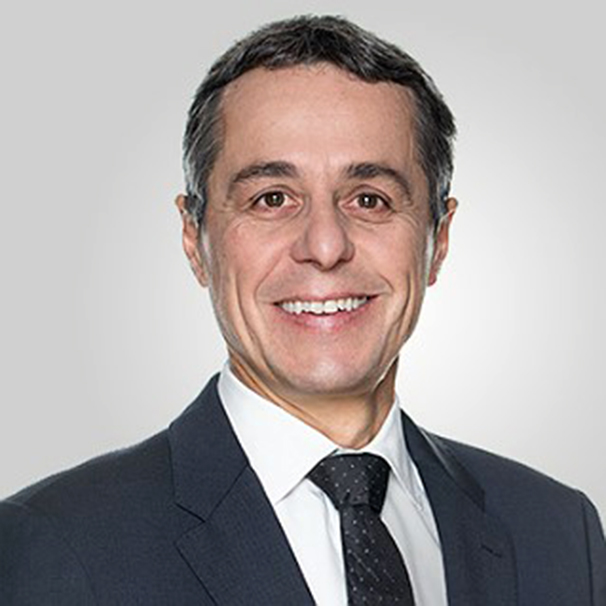The war in Ukraine has had worldwide ramifications. It has spread far beyond the continent of Europe, lighting a fuse before a powder keg capable of turning the whole world upside down.
Africa, for example, has suffered its immediate consequences with a steep increase in staple food and fertilizer prices. Whether the war results in food shortage, an attack on territorial sovereignty, a nuclear threat, an impediment to freedom of navigation or a violation of international humanitarian law, its consequences and risks are felt wherever we live on the planet. The war has now been raging for almost 28 months.
Thousands of people have died, entire families have been forced to leave their homes and their country. Since 24 February 2022, the fundamental principles of the United Nations Charter have been flouted in Ukraine.
As the ‘people of the United Nations’, we cannot stand by idly. But how can we proceed, when cultural clashes and blockages in international institutions are a worrying sight? I am convinced that partnering with Ghana, and other like-minded countries in Africa, and looking beyond our differences, we can find the necessary political will to act, by drawing on our common humanity.
Switzerland’s DNA is one of dialogue. To those who will call us overly optimistic, I would remind you that my country is made up of four cultures and four official languages, and that our ability to speak together is the foundation of our unity in diversity. I know this is much the same for Ghana, with its peaceful coexistence.
At a time when the documents on which we have built our international order – such as the United Nations Charter and the Geneva Conventions – are being defied, I as Swiss Foreign Minister, am convinced that we must put this culture of dialogue to work for world peace.
This is why my country, at the request of President Zelenskyy, has assumed its responsibilities and will be organizing the first High-Level Conference for Peace in Ukraine on 15 and 16 June. I am glad we can count on Ghana as a partner in this endeavor.
While it is too early to make peace, it is more than time to prepare for it. The aim of this conference is therefore to establish a common framework and concrete steps towards a future peace process. In concrete terms, we are ready to conduct a courageous and necessary dialogue, to compare all points of view on the Ukrainian conflict with, as a common framework, respect for international law.
Firstly, we want to establish mutual understanding between as many States as possible on a comprehensive, just and lasting peace in Ukraine. Discussions will focus in particular on the various peace plans already proposed.
Additionally, this platform of exchange will focus on subjects of global interest, such as food safety, freedom of navigation, nuclear safety and humanitarian aspects, including prisoner exchanges. Finally, this initiative to end the war in Ukraine can only be followed by concrete and effective action, if there is discussion at the highest political level on how Russia can be involved in such a process.
Switzerland, as a neutral state with a humanitarian and diplomatic tradition, has always been able to listen to and understand the different interests involved. On the road to peace, we can get nowhere on our own.
Together, on the other hand, we can go a long way. But we have to move in the same direction. To do that, we need to pool our strengths, our ideas and our visions of the world, however different they may be.
Ghana has an opportunity to shape this conference from its specific perspective and contribute significantly by making its voice heard. The Ukraine Peace Summit is a great opportunity for Ghana and for Africa to contribute to shaping a future peace-order and to protecting its own interests.
By Federal Councillor Ignazio Cassis, Swiss Foreign Minister.
Ignazio Cassis, Foreign Minister and Former President of Switzerland









